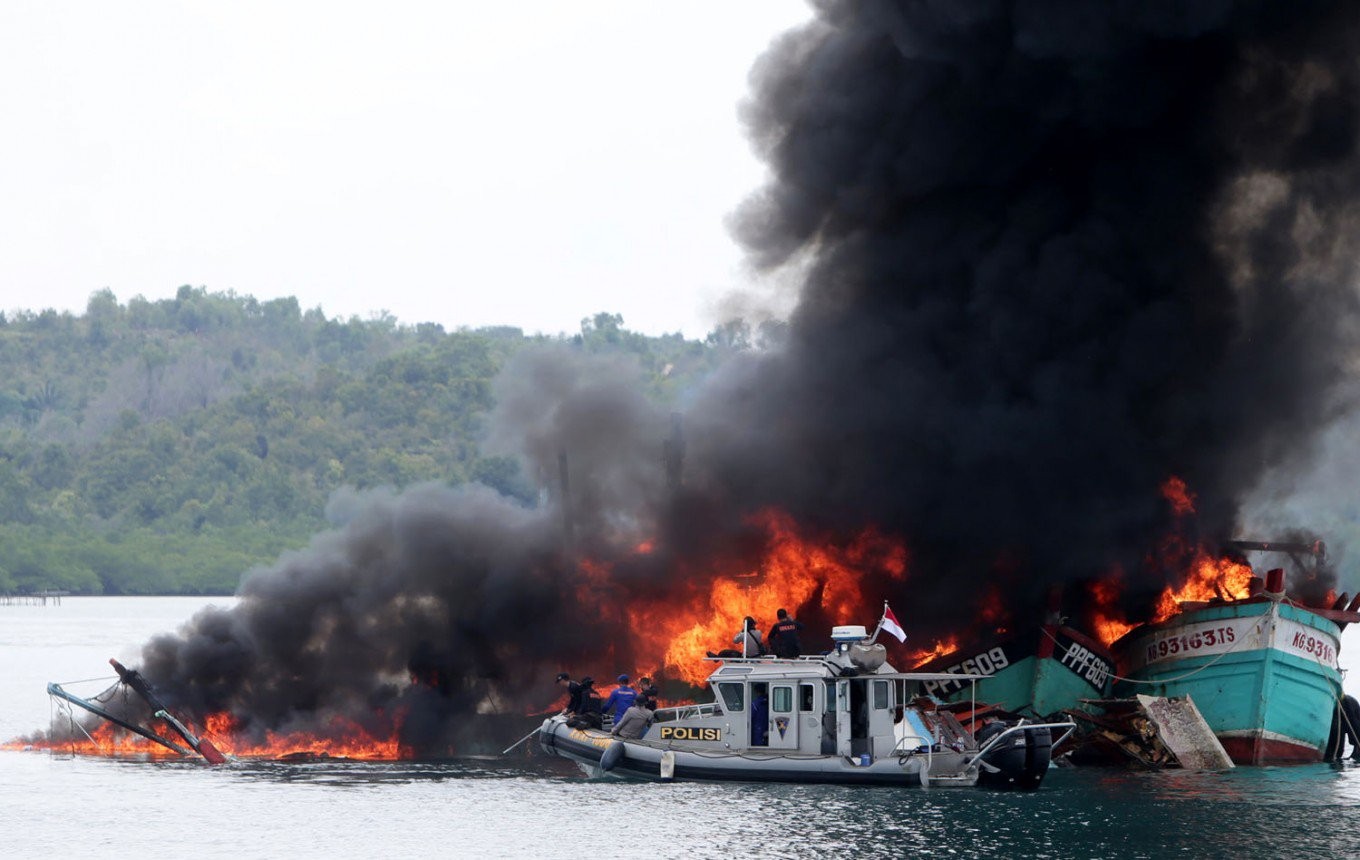Popular Reads
Top Results
Can't find what you're looking for?
View all search resultsPopular Reads
Top Results
Can't find what you're looking for?
View all search resultsMore than half of 539 sunk fishing ships come from Vietnam
The Indonesian government sunk over a period of five years 539 foreign fishing ships operating illegally in Indonesian waters, 55 percent of which came from Vietnam
Change text size
Gift Premium Articles
to Anyone
I
n the period from 2014 to 2019, the Indonesian government sunk 539 foreign fishing ships operating illegally in Indonesian waters, 55 percent of which came from Vietnam, an official from the Maritime Affairs and Fisheries Ministry has said.
“Other ships came from China, Thailand, Malaysia and other countries,” an expert staff member in the Anti-Illegal Fishing Task Force (Satgas 115), Yunus Hussein, said recently as quoted by kompas.com.
He said most of the fishing ships were seized in the exclusive economic zone, which was still the subject of dispute among the countries.
Indonesia could not send those fishermen to jail for being involved in illegal activities in the exclusive zones, Yunus said, adding that instead, they were only required to pay a fine, which they could not pay if they had no money.
The official said the Indonesian authorities could prosecute those who operated illegally in Indonesian territory.
Yunus said only a few Indonesian fishermen were arrested in the exclusive economic zone because most of them operated in Indonesian territory that was still rich in various kinds of fish.
However, Yunus added that many of the Indonesians worked for foreign ships such as those owned by businessmen from Taiwan and Thailand. He said most of them were victims of human trafficking for forced labor. “They were treated inhumanely,” he added.
He said the Foreign Ministry had a citizen protection directorate general that had the authority to deal with the issue, while the Maritime Affairs and Fisheries Ministry had limited authority to protect the rights of those Indonesian fishermen. (bbn)










